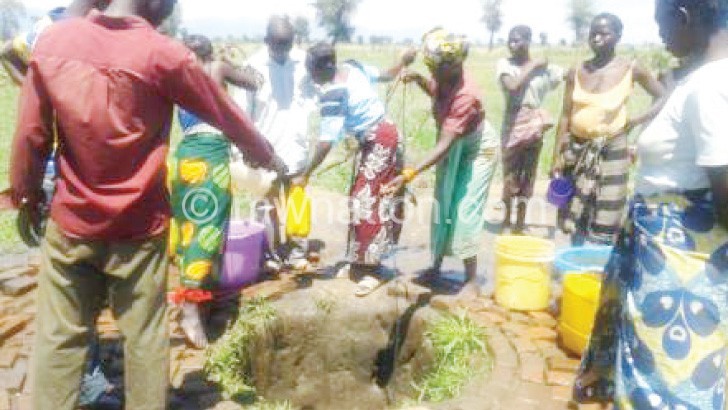Chagunda cries for equal treatment
Five presidents. Five decades of self-rule. Twenty-five years of democracy. Nothing much to show for all the change. Frustration has become a byword among rural Malawians as they count down to the 53rd anniversary of nationhood.
They cannot access markets due to bad roads and some keep dying of preventable diseases because of lack of health facilities.
At Chagunda, an isolated area under Traditional Authority (T/A) Kachindamoto in Dedza, poverty seems deeply entrenched.
No schools. No health facilities. No borehole. No market. The farming community is almost cut-off and neglected.

“Unlike our friends at Dedza Boma, we are always sidelined,” says Nalembani Katunga, 42.
The population feels betrayed and abandoned by government and other service providers.
They have never tasted safe water. With no borehole, they rely on unprotected wellsprings. Diarrhoeas and other waterborne diseases in the area are rampant.
“Women walk more than 10 kilometres to access water from unprotected wells,” she narrates.
But this is just a glimpse of a graver problem.
Patients and pregnant women walk up to 20 kilometres to access life-saving services at Mua Catholic Hospital. Some take perilous boat rides on Lake Malawi.
“The road has been impassable since the bridge on Nambuma River was washed away decades ago,” says Catherine Byson, 24.
The damaged road fuels preventable deaths and deprives the area of social amenities,
“Beside the damaged bridge, it is a pity that we don’t have a full primary school 52 years after independence. We have to do with a Junior Primary School,” says village head Chagunda.
The school, with five grass-thatched classes, was constructed by well-wishers, including priests from Mua, who were touched by deepening illiteracy in the area.
“Our children have nowhere to go when they complete Standard Five. Girls drop out of school and marry very young because they cannot bear long distances,” says the village head.
Problems in Chagunda are many. The locals feel left behind.
But they are slowly waking up from slumber. They want duty-bearers and elected officials to account for the rural locality’s underdevelopment.
Among other things, they are walking with National Initiative for Civic Education (Nice) Trust to change the depressing picture.
Nice, with funding from the European Union (EU), has established citizen forums which act as eyes and mouths of underserved communities on matters affecting them.
Empowered with knowledge and skills to hold duty-bearers and service providers accountable for their actions, Chagunda Citizen Forum is lobbying for improved service delivery and accountability.
They demand a fair deal.
Recently, they summoned duty-bearers and service providers, including Dedza district commissioner James Kanyangalazi and Dedza East member of Parliament Juliana Lunguzi, to get to the bottom of their dilemma.
Touched by their plight, Kanyangalazi instantly instructed council officials to start delivering adult literacy classes in the area to fill the knowledge gap.
“We came to appreciate the needs, for we didn’t know that this part of the district is lagging behind.
“Certainly, together with non-governmental organisations implementing projects in this district, we must do something to develop the area,” he said.
Lunguzi also assured the communities that she will partner with government in helping the people.
Christopher Naphiyo, Nice regional civic education officer for the Centre, commended the citizen forum for their commitment and willingness to reshape their community.
He decried lack of civic empowerment, saying: “When people have been empowered with information, they can bargain for development from relevant leaders.”
He is optimistic that the citizen forums to bring development by acting as links between communities and duty-bearers on various developments and governance issues.
“Our role is to give them the power they need to change the situation. We will keep empowering them until development takes place in the area,” he says.
For Malawians in Chagunda, development means accessible schools, safe water, health facilities, bridges and other essential services. However, they single out the bridge as key to unlocking the communities’ hidden opportunities. n





